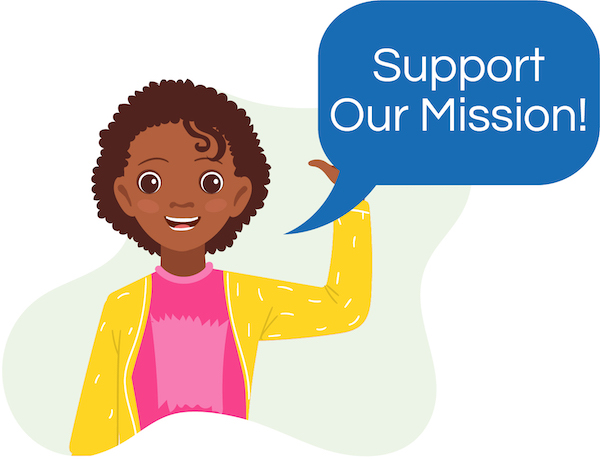Pediatric Audiology Services
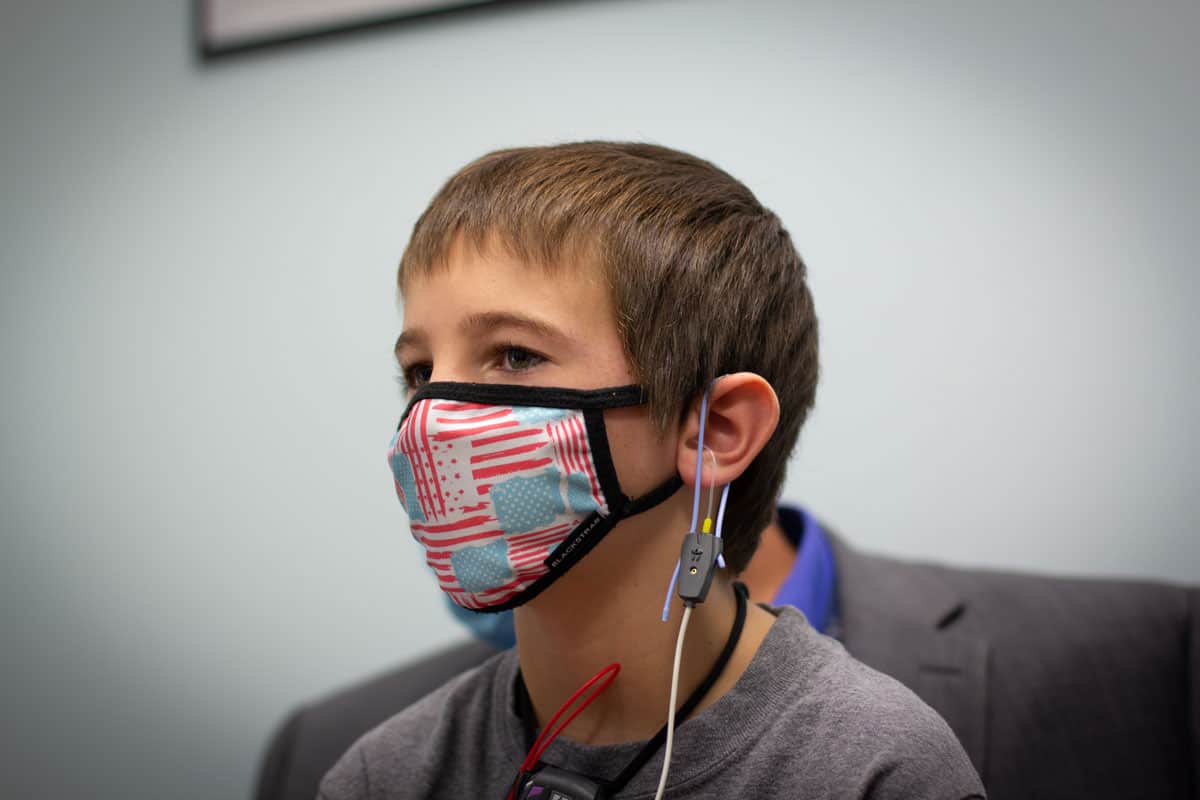
Identifying hearing loss as early as possible is critical for the best outcomes!
Most commonly children are diagnosed after a failed newborn hearing screening, but sometimes hearing loss is acquired later and not caught until the child is older and has delayed speech and language development or is struggling in school.
Severe or profound hearing loss may be obvious because the child may not respond to sound. But noticing milder forms of hearing loss—including hearing loss in only one ear—can be more difficult. That is why regular hearing evaluations as children grow and mature is so important.
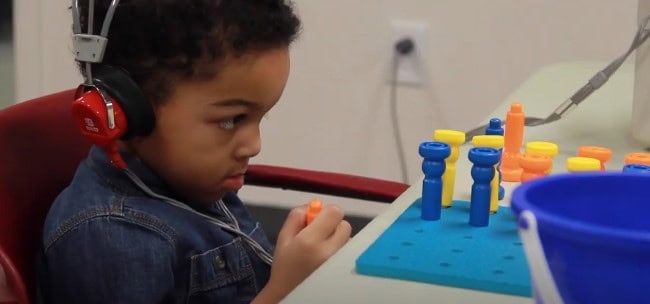
Signs of Hearing Loss in Children:
- Delays in the development of a child’s ability to speak and use language as compared to others of the same age; this difference in speaking and language ability may be noticed at home, at school, or in the childcare setting
- Difficulty with paying attention and behaving
- Difficulty with academic performance
- Inappropriate, delayed, or lack of response to soft and moderate-level sounds or spoken language when distractions are minimal
- Difficulty understanding speech when there is background noise
- Sitting close to the TV when the volume is loud enough for others; increasing the volume on the TV or other audio electronics to unreasonably loud levels
- Not responding to voices over the telephone or continually switching ears when on the phone
- Not “jumping” or becoming startled by sudden, loud noises
- Unable to accurately figure out where a sound is coming from
A Lot Can Be Done To Help Children With Hearing Loss!
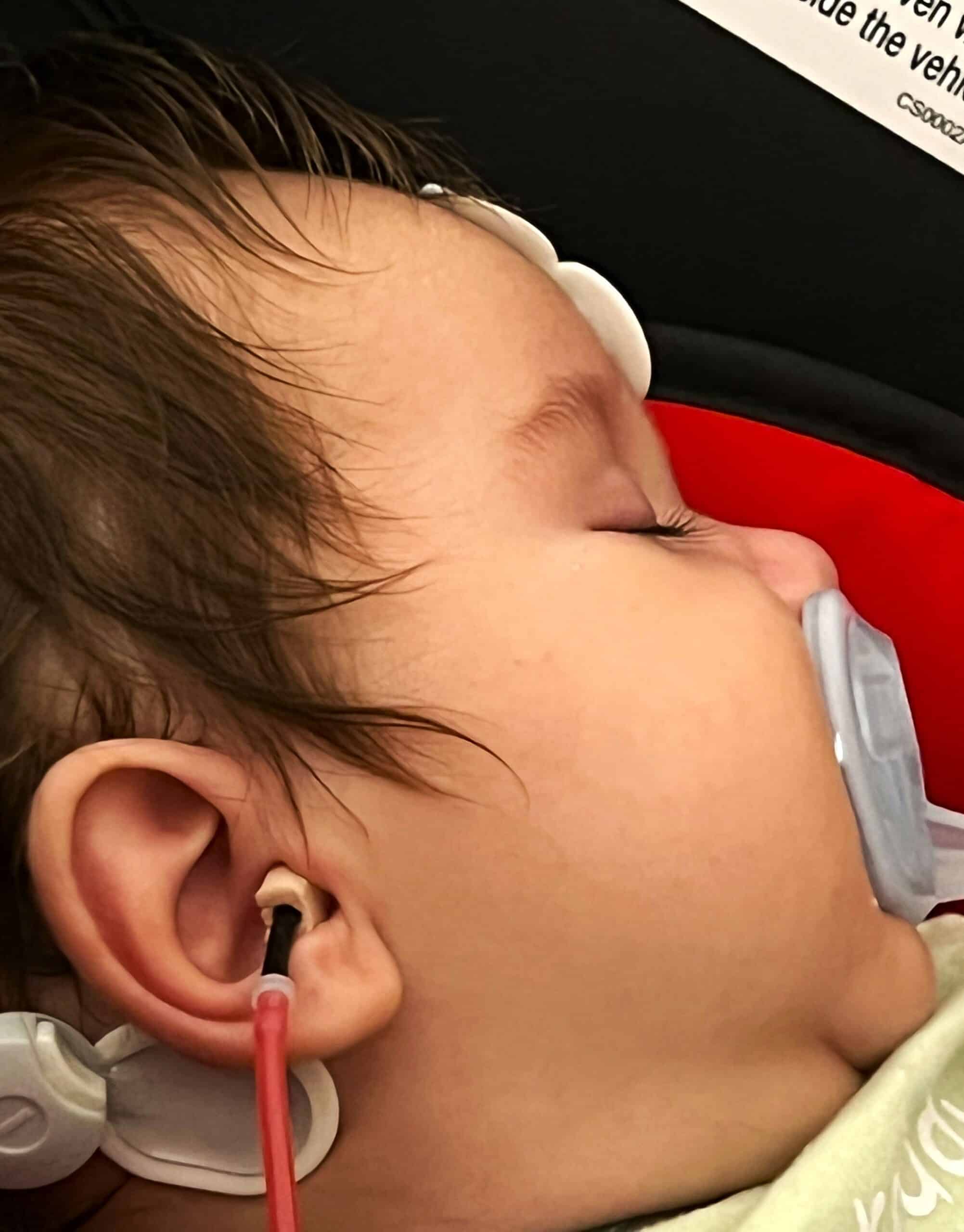
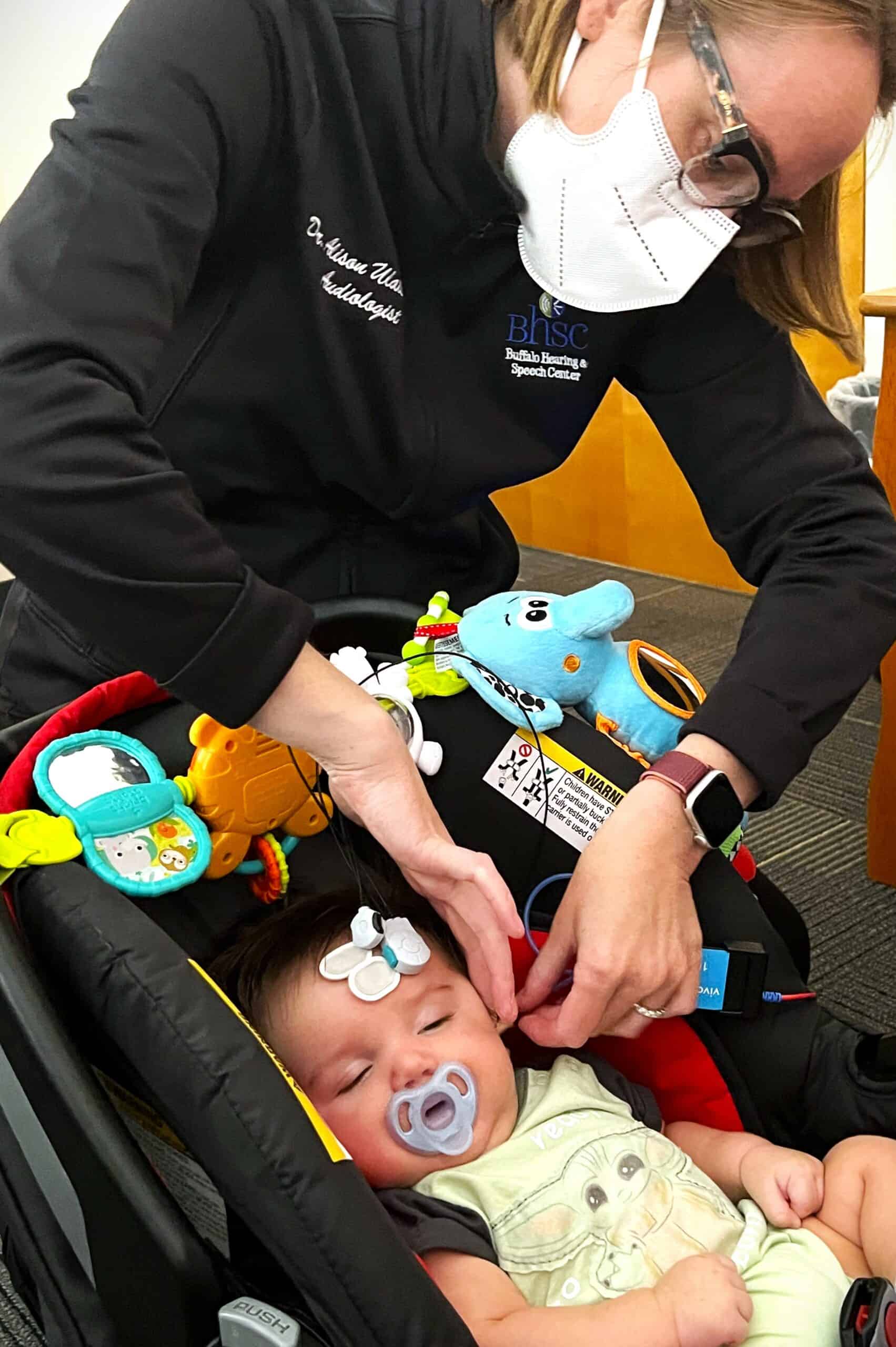
Auditory Brainstem Response (ABR) Testing
The pediatric audiologists at Buffalo Hearing and Speech Center have experience and special expertise to test patients as young as one week old. Auditory Brainstem Response (ABR) testing is used for those who are either too young to give a response to sound or are unable to give a response due to physical or cognitive disabilities. An ABR measures brain waves produced when the ear hears sounds, checking the hearing pathway from the ear to the brainstem.
ABR testing is much faster when the baby is sleeping, for this reason we ask that siblings not be brought to this appointment. To help ensure your baby is able to fall asleep during the testing appointment, try holding off on naps and delaying the closest feeding until you are in our office. Keeping your baby awake and engaged with you during the car ride to your appointment is helpful. You should also consider bringing anything that your baby normally sleeps with such as pacifiers or typical crib objects. Blankets and swaddles work well during testing, both for the comfort of your baby and to help keep hands off the electrodes used during testing.
Beyond ABR testing, visual reinforcement and conditioned play audiometry can be used to behaviorally test children until they are old enough to use a traditional hand raise response to tones.
Amplification Options
(716) 885-8318
School and Clinic Locations
Let Us Help
At Buffalo Hearing & Speech Center, we are dedicated to helping you overcome any hearing, speech, communication, or educational need you have. Call us to speak with a Specialist or Write Us A Message.
The solution starts here!



